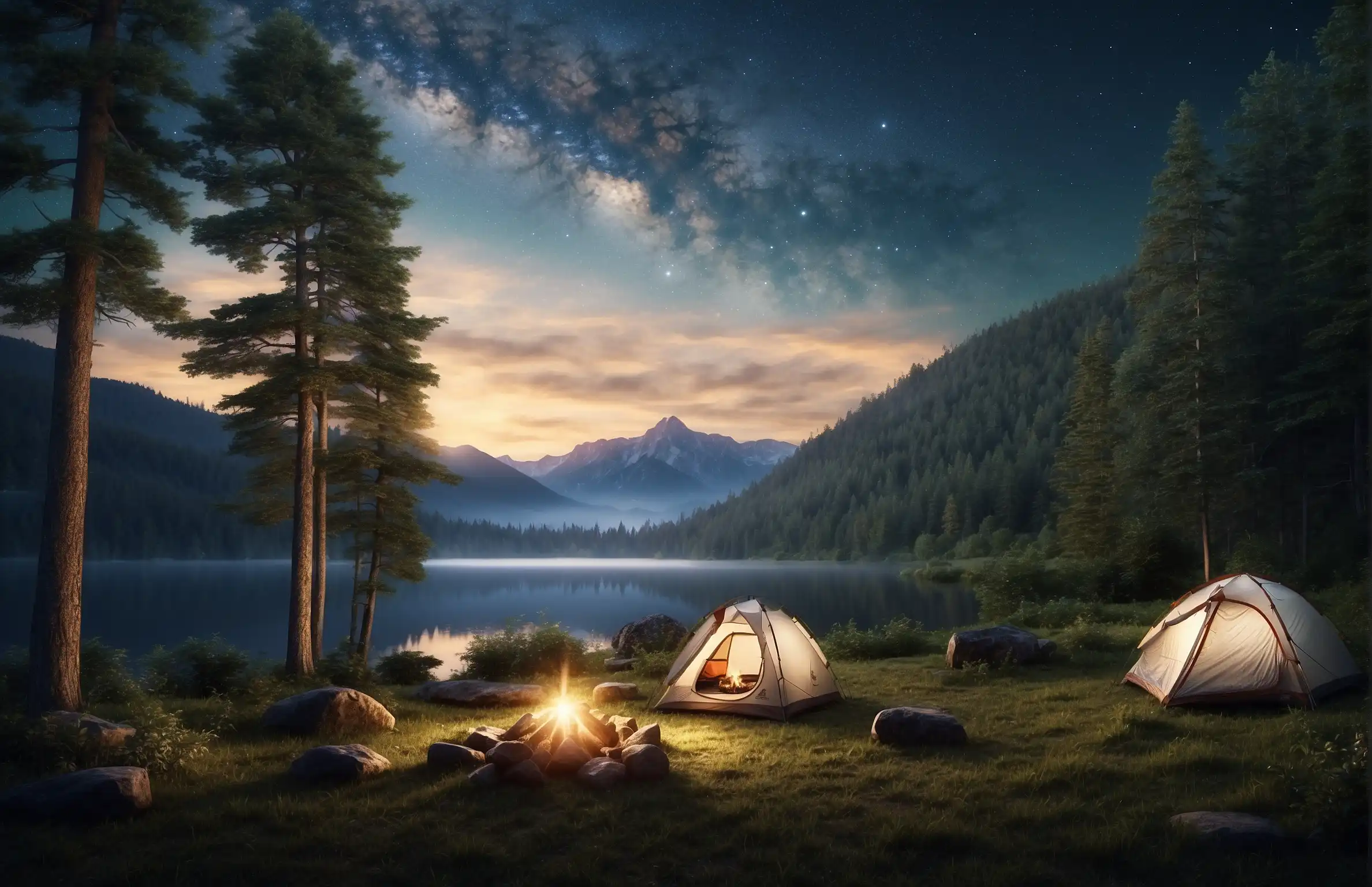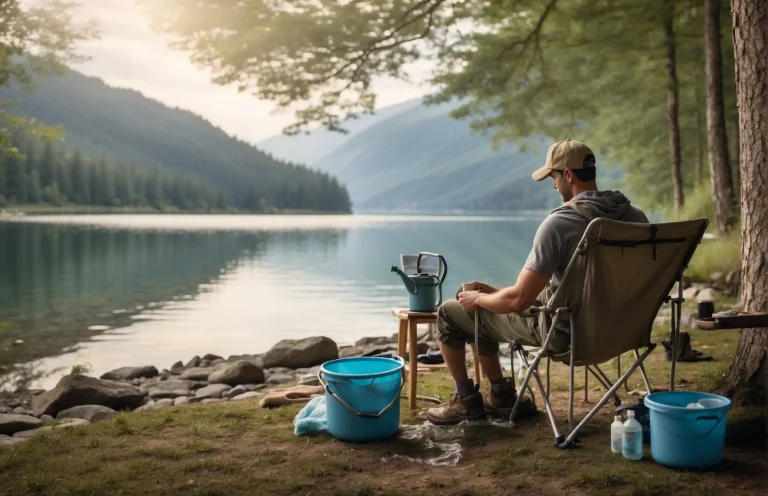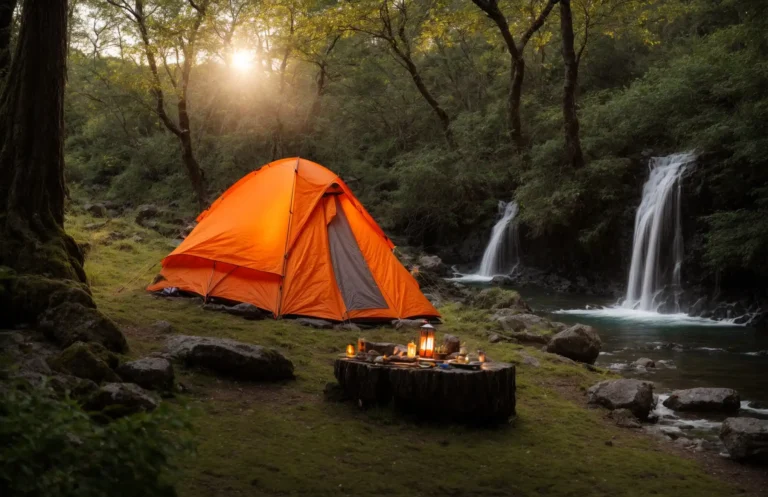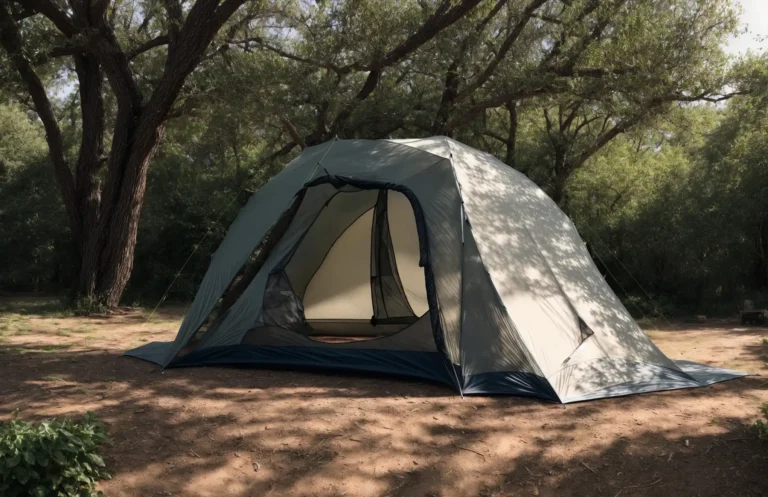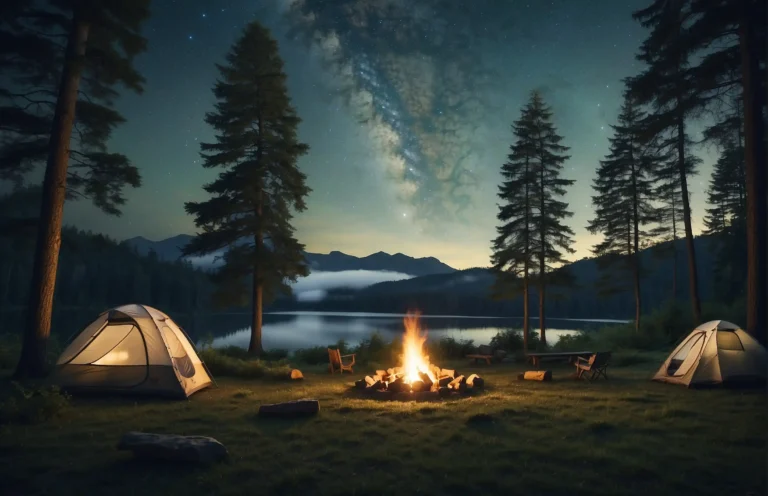Where is Camping Illegal: Know Before Out
Camping is illegal on private properties without permission and in protected areas where it’s explicitly banned. National parks often require permits and have designated camping spots to protect the environment.
Camping offers an excellent opportunity for adventure and relaxation, drawing outdoor enthusiasts to explore the natural world. However, it’s essential to know where you can pitch your tent legally. Choosing the right location is not just a matter of preference but also of legality.
Various regions have different rules governing camping, aimed at ensuring safety, preserving wildlife, and respecting landowners’ rights. Before embarking on a camping trip, it’s crucial to research the area’s regulations. National forests and public lands generally welcome campers, but always check for specific guidelines. Ignoring these rules can lead to fines or even criminal charges, so responsible campers should always be informed and comply with local laws.
Understanding the Legal Framework Of Camping
Embarking on a camping adventure can be a thrilling experience, but it’s essential to acquaint yourself with the legal frameworks that govern where you can pitch your tent. The laws surrounding camping are designed to protect both the environment and landowners’ rights, ensuring that outdoor activities are executed responsibly. From vast national parks to the private backcountry, understanding where camping is allowed is critical for avoiding fines, preserving nature, and maintaining safe and lawful camping practices.
The Distinction Between Public and Private Lands
Public lands are managed by various government agencies and typically include national forests, parks, and grasslands. These areas often welcome campers, although there might be restrictions depending on the site. Private lands, on the other hand, belong to individuals or organizations, and camping on these lands requires explicit permission from the owner. Trespassing laws are strictly enforced, and camping without consent can lead to legal consequences.
- Public Lands: Often allow camping with specified restrictions (permit requirements, designated sites, etc.)
- Private Lands: Require owner permission to camp, with a potential risk of trespassing charges without consent
Zoning Laws and their Impact On Camping
Zoning laws are established by local governments to regulate land use within their jurisdictions. These laws can have a considerable impact on camping, determining which parcels of land are available for recreational use. For example, areas zoned for residential or commercial purposes are generally off-limits for camping. Open space and recreational zones are more likely to allow camping, though with specific guidelines to ensure the harmonious use of the land.
It is important to review zoning ordinances before setting up camp to prevent legal issues. Areas designated for conservation purposes might be restricted to protect delicate ecosystems, even if they appear to be perfect camping spots.
Overview Of Federal, State, and Local Regulations
| Federal Regulations | State Regulations | Local Regulations |
|---|---|---|
| Govern camping on lands managed by federal agencies such as the National Park Service or the Bureau of Land Management. These lands often have designated campsites and permit systems. | State parks and forests have their own set of rules, which can differ widely between states. It’s crucial to understand these when camping in state-controlled areas. | County or city ordinances must be observed, particularly in regards to fire regulations, length of stay, and waste disposal. These can be especially variable and are enforceable with local authority. |
Navigating the web of camping regulations requires due diligence. At the federal level, you’ll find laws that oversee large tracts of natural landscapes, while at the state level, you must comply with a different set of regulations that manage the state’s natural resources. Scroll down to the local level, and you’ll encounter a varied tapestry of rules that reflect the immediate community’s values and concerns regarding camping activities.
Knowing which agency manages the land and what regulations apply is key to a legal and enjoyable camping experience. Remember, ignorance does not excuse non-compliance, and it’s the camper’s responsibility to be informed.
Prohibited Areas: Where You Can’t Set Up Camp
Prohibited Areas: Where You Can’t Set Up Camp
Wilderness whispers its eternal call to the outdoor enthusiasts and camping aficionados among us. Yet, as much as the great outdoors beckons, understanding and respecting the boundaries of legal camping zones is crucial. Not all natural havens welcome campers with open arms; in fact, certain areas strictly prohibit setting up camp. By knowing these restricted zones, adventurers can ensure they honor the environment and adhere to the law. Below, we delve into some common locales where pitching a tent is a no-go.
National Parks and Protected Areas With Camping Restrictions
National parks serve as conservation havens for a country’s natural beauty, flora, and fauna. Many park regulations aim to preserve these landscapes for future generations. As such, camping might be restricted or confined to specific areas within these protected territories. Always check park guidelines before embarking on a camping adventure as the rules can vary greatly between parks.
- Designated Campgrounds: Some parks offer designated campgrounds with necessary facilities.
- Backcountry Camping: Permits are often required for backcountry or wilderness camping.
- Seasonal Restrictions: Note that some parks may have seasonal closures for specific camp areas.
Urban Areas and the Illegality Of Camping In City Limits
Camping within urban areas is typically against municipal ordinances. Cities are not equipped to support urban camping, and doing so can lead to overcrowding, sanitation issues, and other public concerns. Before setting up any temporary abode, consult city regulations to avoid fines or displacement.
Camping alternatives in urban areas include:
- RV Parks: Many cities provide designated areas for RVs.
- Hostels: A budget-friendly accommodation option.
Private Property and the Necessity Of Obtaining Permission
Private property is self-explanatory, yet it’s surprising how often campers overlook this. Without express consent from the landowner, camping on private land is not only illegal but also disrespectful. Always secure permission, and stay conscious of the private nature of your camping site.
- Seek permission from the landowner.
- Understand the boundaries and rules of the private property.
- Leave the property as you found it, minimizing your impact.
Environmental Protection Zones and Sensitive Ecosystems
Areas designated as environmental protection zones are critical to the preservation of sensitive ecosystems and biodiversity. Disturbances from camping can damage fragile habitats, disrupting wildlife and plant life. These areas might include:
| Zone Type | Reasons for Restriction |
|---|---|
| Wetlands | Home to unique species and vital for water purification. |
| Riparian Areas | Essential for the health of aquatic ecosystems. |
| Endangered Species Habitats | Protection from human disruption is crucial for survival. |
Tread lightly and follow the explicit guidelines provided for such areas to maintain their integrity and ensure they remain untouched for the delicate species that call them home.
Consequences of Illegal Camping
The allure of the great outdoors can tempt many adventurers to venture into the wild for a camping excursion. Yet, amidst this excitement, it’s crucial to understand that not every picturesque location welcomes campers. Illegal camping — setting up a campsite in areas that prohibit such activity — can result in serious consequences. This not only refers to potential legal actions but also encompasses the unintended damages to our precious environments. Understanding the ramifications of camping without permission can help preserve both the integrity of natural habitats and future access to these places for everyone.
Legal Penalties and Fines Associated With Unauthorized Camping
Camping without the appropriate permissions or in restricted areas often leads to legal penalties. Enforcement can vary depending on the location, but common consequences include:
- Fines: Monetary charges are the most frequent penalty, and these can range from a nominal fee to substantial sums depending on the severity of the infringement and local regulations.
- Ejectment: Campers may be ordered to leave immediately, curtailing their outdoor experience abruptly.
- Citation or Arrest: In more serious cases, violators might receive a citation or even be subjected to arrest, potentially leading to a criminal record.
It’s essential to check with local land management agencies regarding camping regulations to avoid facing these legal consequences.
Environmental and Ecological Repercussions
Illegal camping can significantly harm the environment — a fact often overlooked by those who camp unlawfully. Impacts include:
| Repercussion | Effect |
|---|---|
| Disturbed Wildlife | Encroachment on habitats can lead to stress and behavioral changes in wildlife. |
| Vegetation Damage | Non-designated campsites may cause soil compaction and destruction of native plant life. |
| Pollution | Improper waste disposal can contaminate water sources and soil, posing health risks to both animals and humans. |
Protecting the delicate balance of these ecosystems is essential, and adhering to camping regulations plays a key role in preservation efforts.
Impact On Access to Natural Areas in the Future
Repeated instances of illegal camping can have a detrimental effect on the accessibility of natural areas. Consider the following outcomes:
- Stricter Regulations: Authorities may respond to rampant unauthorized camping by imposing more stringent rules, making legal camping more challenging for everyone.
- Area Closures: To rehabilitate ecosystems or prevent further damage, popular spots may be closed off to the public altogether.
- Increased Enforcement: Heightened surveillance and patrolling can diminish the sense of solitude and freedom often sought by campers.
As responsible campers, it’s imperative to adhere to established guidelines, enabling continued enjoyment of these natural treasures well into the future.
Alternatives to Illegal Camping
Embarking on a camping adventure fills the soul with excitement and a sense of freedom. It’s crucial, however, to understand that camping is not permitted everywhere. To preserve natural habitats and ensure public safety, many areas have restrictions against camping. But do not let this dampen your spirit! Numerous legal alternatives provide fantastic outdoor experiences while respecting the environment and local laws. Let’s explore these alternatives to ensure your camping trips are both enjoyable and compliant with regulations.
Designated Camping Sites and their Benefits
Designated camping sites offer tailored amenities and are often situated in locations that are breathtaking and convenient. Benefits of opting for these sites include:
- Access to Facilities: Restrooms, showers, fire pits, and picnic tables enhance the comfort of your stay.
- Environmental Protection: Using established sites helps to minimize the impact on wildlife and vegetation.
- Safety: Designated areas are monitored for hazards, reducing the risk of accidents.
- Community: Mingle with fellow campers and create unforgettable memories.
Obtaining Permits For Backcountry Camping
For those seeking solace away from established sites, backcountry camping is a thrilling option. It is essential to secure the necessary permits before setting off. This process:
- Ensures the land can sustain the number of campers without damage.
- Helps you learn about the area’s specific regulations and weather conditions.
- Provides vital information for rangers in case of emergencies.
Responsible Camping Practices
Being a responsible camper is about leaving the site as you found it or even better. Practices include:
- No Trace Principles: Take all trash with you, and avoid disturbing the environment.
- Fire Safety: Use fire rings in designated areas and never leave fires unattended.
- Wildlife Respect: Keep a safe distance from animals and do not feed them.
- Resource Conservation: Use water sparingly and avoid using soaps in natural water sources.
Exploring Lesser-known Legal Camping Options
Beyond popular parks and sites, many hidden gems await discovery. Searching for these can reveal:
- Secluded spots offering peace and unique scenery.
- Opportunities to explore areas less trafficked by tourists.
- Chances to connect with locals who can share the area’s history and culture.
Always do thorough research or contact local land management agencies to confirm the legality of camping in these areas.
Know more: How to Find Camping Sites
Awareness and Education To Promote Legal Camping
Exploring the great outdoors offers a sense of freedom and an escape from the hustle and bustle of daily life. Yet, many enthusiastic campers and hikers may inadvertently set up camp in areas where it’s against the law, leading to potential fines, environmental damage, and even safety risks. Understanding where camping is illegal and learning how to identify permissible spots are crucial skills for any outdoor adventurer. Bridging this knowledge gap is where awareness and education play a pivotal role.
The Role of Government Agencies and Outdoor Organizations
Government agencies and outdoor organizations are on the frontlines of promoting legal camping practices. These entities manage public lands and are responsible for protecting both the environment and park visitors. They achieve this through:
- Publishing clear guidelines and regulations regarding camping locations and behavior.
- Providing maps and information at visitor centers and online platforms.
- Offering workshops and training sessions to educate individuals about safe and legal camping.
- Enforcing rules and monitoring protected areas with park rangers and personnel.
Educational Campaigns Targeting Campers and Hikers
Enlightening campers and hikers about the importance of legal camping comes down to impactful education campaigns. These initiatives aim to:
- Highlight the impacts of illegal camping on wildlife and habitats.
- Share strategies for minimizing one’s environmental footprint.
- Instill a code of ethics, encouraging respect for nature and fellow outdoor enthusiasts.
- Teach the principles of Leave No Trace and the concept of wilderness stewardship.
Such campaigns are often a collaboration between nonprofit organizations, local communities, and conservation groups, tailored to foster a deep appreciation for responsible camping etiquette.
Technological Tools and Resources For Finding Legal Camping Spots
In the digital age, campers are turning to technological tools and resources to plan their outdoor excursions. Websites and mobile apps are increasingly prevalent, making the search for legal camping areas more straightforward. Campers can utilize tools such as:
- Interactive maps detailing designated camping zones and restrictions.
- Apps featuring user reviews and photos of campgrounds to ascertain suitability and legality.
- Online platforms providing reservation systems for campsites on public lands.
- GPS tracking ensuring campers remain within legal camping areas during their stay.
Building a Community of Responsible Outdoor Enthusiasts
Finally, promoting legal camping is about nurturing a community that embraces responsible outdoor practices. Community engagement efforts include:
- Encouraging peer-to-peer learning and sharing experiences among campers.
- Establishing ambassador programs where seasoned campers educate newcomers.
- Organizing cleanup events and nature restoration projects, fostering a connection to the land.
- Celebrating conscientious camping behaviors through recognition and rewards.
Such communal activities not only educate but also build solidarity among those with a shared passion for the outdoors, ensuring sustainable camping practices are passed down to future generations.
Conclusion
Exploring the outdoors offers remarkable experiences, yet it’s crucial to recognize camping restrictions. Abiding by local laws keeps natural habitats pristine and campers out of trouble. Always check regulations before pitching your tent. Ensuring responsible, lawful adventures makes for a universally respected camping culture.
Adventure responsibly – your savvy planning safeguards nature’s splendor for all. Don’t miss out on your next great outdoor experience. Stay tuned to Outdoor Awaits for expert camping tips and exciting insights in our Learning category.

